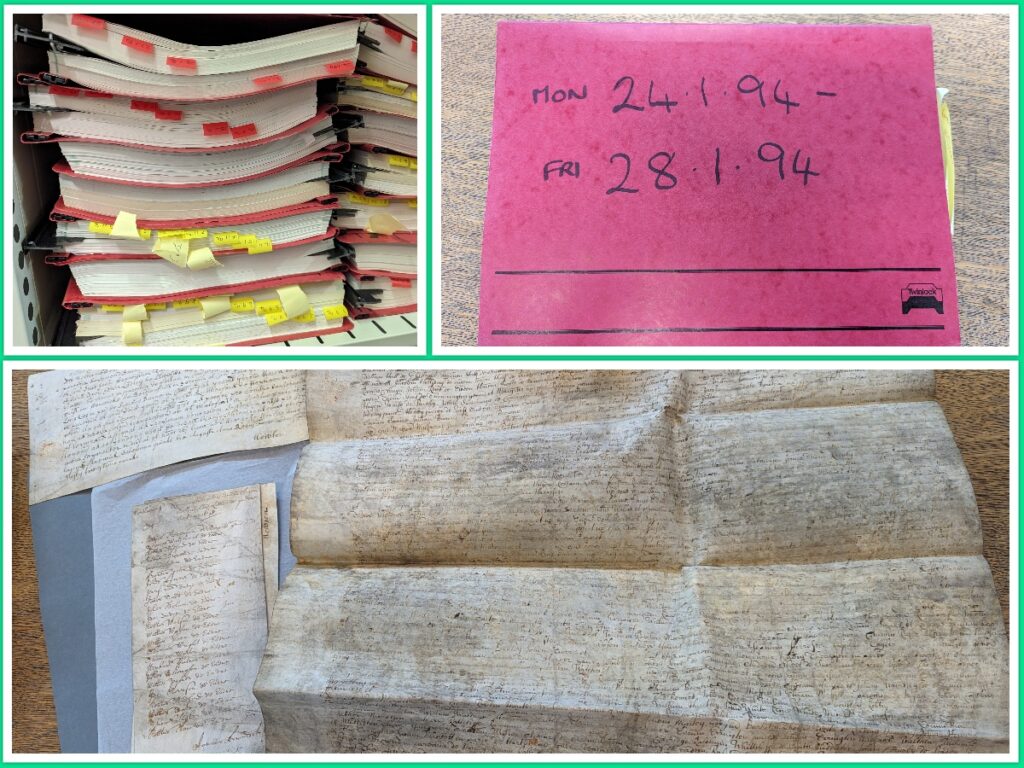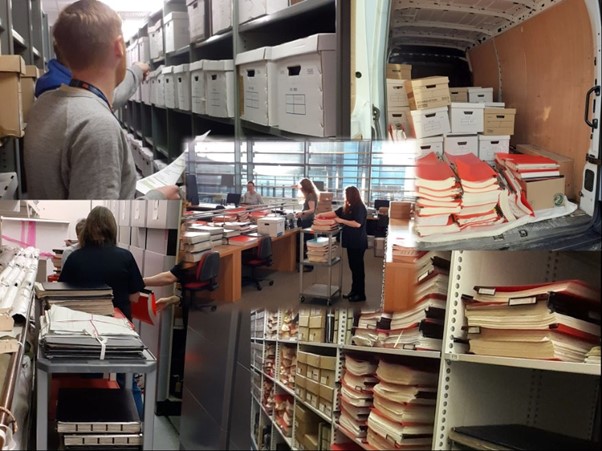As with many types of archive material, the records that have been generated by Northumberland’s courts contain two of the important characteristics of historic documents; they are both practical and interesting. Not only do these registers and files act as an administrative record of court activities, but they are also fascinating in their own right; containing valuable social and family history. Court records make up one of the largest volumes of material that we have in our strong rooms and are also some of the oldest, with Quarter Sessions and Petty Sessions records going back to 1580. You would probably (quite rightly) imagine that this sort of material – very old, faded documents with difficult to read handwriting and even more indecipherable language – is the sort of material you would typically find in an archive. However, you may not have considered that when much more recent papers from local courts are no longer in current use, their home is also within the archives, as a continuation of this series of material. And so that is why our strongrooms contain not only quarter session documents from the 16th century but also registers from Northumbrian Magistrates Courts from 2016.

At Northumberland Archives, we have recently begun a large project to improve the cataloguing and listing of our magistrate’s material. Our first task was to ensure that the material previously catalogued within our holdings was correctly listed. In the early 1970s, petty sessional courts were replaced by Magistrates Courts, and so it was important to make sure this administrative change was reflected in the way our court material is catalogued, and that information presented to the public via our online catalogue was clear and logical. Although this was a relatively large undertaking, the task of checking and renumbering material was straightforward, and so it was quite simple to get our current holdings up to scratch.
Once we were sure our existing material was in order, our attention turned to the large volume of recently acquired or uncatalogued court accessions in our strongrooms. The nature of magistrates’ courts means they tend to produce a large volume of records. For example, each court within a division has a separate register for each session, which records the outcomes of every case heard in that court. This may include adult, youth, family, licensing and domestic courts. If a magistrate’s court covers a large area, this can mean these registers are quickly filled. In 2022 Northumberland Archives took in one of our largest ever deposits of material; five separate vanloads of papers and registers from Bedlington Magistrates Court. This huge accession took archive staff over a week just to get on site and onto shelves, before any cataloguing was even considered. Now this accession, alongside similar tranches of material from Hexham and Tynedale courts can be catalogued and listed together with the rest of our court material.

As mentioned earlier, restrictions under General Data Protection Regulation (GDPR) means that unfortunately for current archive users, nearly all of the material within the magistrate’s series at the archive is closed to public access for a period of 100 years. This in in line with standard personal data legislation and ensures sensitive data relating to individuals is not made available during their lifetimes. Although this may be a source of frustration for anyone hoping for access to this material now, it is hopefully a small consolation that these records will be preserved to the same standards as the rest of the material in our strongrooms. Bedlington court registers from 2016 will therefore be safeguarded alongside Quarter Sessions material from 1546 and, although not accessible now, will be available as a rich source of information for future researchers.
